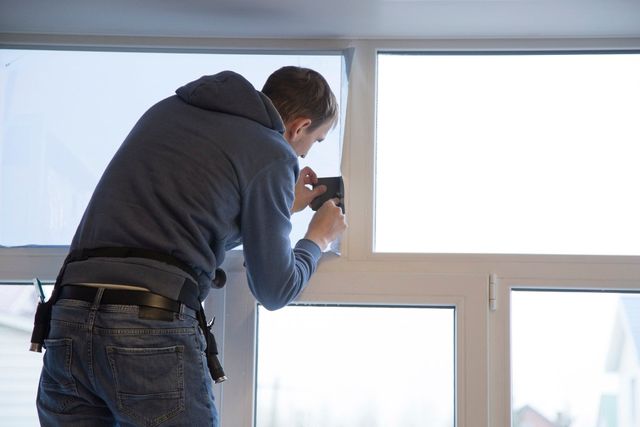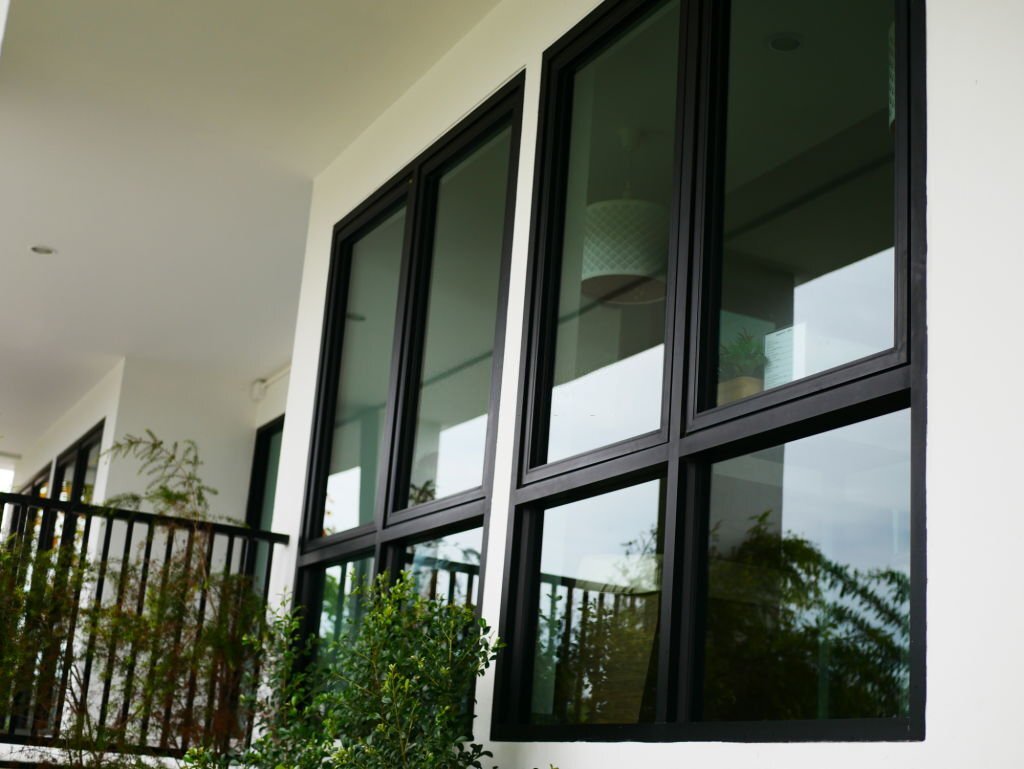Residential Window Tint for Huge Windows: Keep Convenience and Design
Residential Window Tint for Huge Windows: Keep Convenience and Design
Blog Article
Just How Residential Window Tinting Boosts Your Home's Energy Effectiveness
Residential window tinting presents a compelling remedy for home owners seeking to improve energy effectiveness within their living rooms. By applying specialized movies to windows, it successfully decreases warm transfer, therefore stabilizing indoor temperature levels and reducing the need for extreme home heating or cooling.
Understanding Window Tinting
Recognizing window tinting is important for home owners seeking to improve both comfort and power efficiency in their space. Residential Window Tint. Window tinting entails the application of a thin film to the inside or outside surface area of glass windows. This film can dramatically modulate the quantity of sunlight and heat that goes into a home, thus affecting interior climate problems
There are different kinds of window tinting films offered, each with distinct buildings. The performance of window tinting is commonly determined by its Visible Light Transmission (VLT) percent, which suggests how much light can pass with the movie.
Advantages of Energy Efficiency
Window tinting not just improves aesthetics but likewise plays a considerable role in improving power efficiency within household areas. By minimizing warmth transfer via windows, tinted films create an extra stable interior climate, which can cause considerable reductions in energy consumption for heating & cooling. This energy effectiveness equates into lower energy expenses, giving property owners with considerable lasting cost savings.

Additionally, window tinting improves the comfort of living areas. By reducing glow and blocking damaging UV rays, tinted windows develop a more positive environment, which can lead to boosted wellness for owners. The protection versus UV rays likewise aids preserve furnishings and flooring from fading, adding to the long life of family products.
How Tinting Works
Tinting movies run via a combination of advanced materials and innovations created to control the quantity of solar power entering a home. Mostly made up of polyester, these films frequently incorporate metallic or ceramic fragments that mirror and take in heat. This dual ability allows them to considerably minimize the penetration of ultraviolet (UV) rays and infrared radiation while allowing visible light to travel through.
The performance of window tinting is measured by its solar warmth gain coefficient (SHGC), which shows exactly how much solar energy is sent through the home window. Lower SHGC worths are preferable as they signify better heat rejection. In addition, window tints can include a range of shades, permitting property owners to personalize their visual preferences while enhancing power efficiency.
Additionally, these films act as an obstacle, protecting against warm loss throughout colder months by showing indoor heat back right into the living space. This thermal insulation impact matches the air conditioning advantages gained throughout warmer months, contributing to a well balanced indoor climate year-round. By managing solar energy successfully, Get More Info domestic home window tinting not just enhances comfort however likewise plays a crucial role in lowering energy consumption and lowering energy bills.
Selecting the Right Tint

There are various kinds of home window movies offered, consisting of colored, metalized, and ceramic. Colored films are affordable yet might have limited sturdiness. Metalized films provide better warm more information denial but can hinder digital signals. Ceramic movies provide outstanding heat control without compromising exposure and are extremely long lasting, making them a prominent choice.
Visible light transmission (VLT) is one more vital aspect, as it indicates the quantity of natural light that can pass with the tinted glass. Home owners need to pick a tint with a VLT that enhances their lighting preferences while still offering appropriate glow decrease.
Furthermore, examining the solar heat gain coefficient (SHGC) can more tips here aid identify just how well a tint can obstruct warm from sunlight. A reduced SHGC indicates far better warm control, ultimately improving power effectiveness.
Installment and Maintenance Tips
Proper installment and maintenance are essential components in making the most of the benefits of domestic window tinting. To achieve ideal results, it is advisable to work with a qualified expert for setup. This makes sure that the color is applied correctly, staying clear of air bubbles, creases, or misalignment that could endanger efficiency. Professionals also make use of specialized strategies and devices, which can boost the durability and efficiency of the tint.
Adhering to setup, upkeep is crucial to prolong the life of the home window movie. It is advised to wait at the very least 30 days before cleansing the colored home windows to allow the sticky to treat fully.
In addition, routine examinations are helpful. Look for any type of peeling or bubbling, which could suggest improper installment or put on over time - Residential Window Tint. Addressing these concerns without delay can prevent additional damage and maintain energy effectiveness. By sticking to these installation and upkeep ideas, home owners can ensure their window tinting remains to provide considerable energy savings and comfort for many years to find.
Final Thought
In verdict, household window tinting serves as a reliable service for improving energy effectiveness within homes. By reducing warm transfer and obstructing dangerous UV rays, window movies contribute to reduce energy intake and improved indoor convenience.
Home window tinting includes the application of a thin film to the inside or exterior surface of glass windows. By reducing warmth transfer via windows, tinted films create an extra secure indoor environment, which can lead to significant reductions in power usage for heating and cooling.The effectiveness of home window tinting is gauged by its solar warm gain coefficient (SHGC), which indicates how much solar power is sent with the home window. By taking care of solar energy properly, property home window tinting not only boosts convenience but likewise plays a crucial duty in lowering energy consumption and lowering utility bills.
By lowering warm transfer and obstructing damaging UV rays, window films add to reduce power consumption and enhanced indoor convenience.
Report this page